
Past Award Winners
Please use the filters below to view the recipients from a specific year
Christine Foyer
Sustained Excellence
Christine Foyer
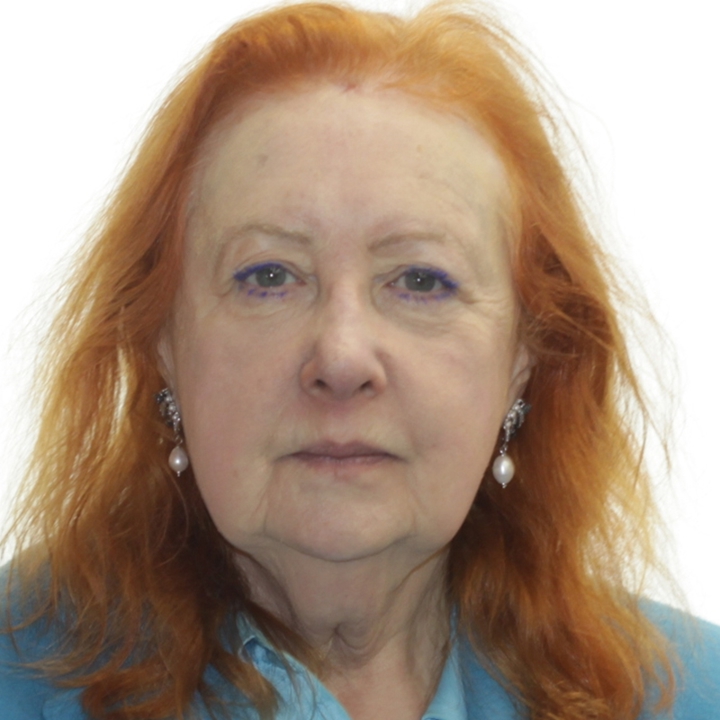
The Biochemical Society Award for Sustained Excellence will be presented to Professor Christine Foyer in 2026. Christine is a Professor of Plant Sciences at the University of Birmingham, a Member of the Environmental Sustainability Board of the FERRERO group and the Editor in Chief of Plant, Cell and Environment. She has over 480 published papers and ranked as a Highly Cited Researcher™ list from Clarivate™. She is listed in the 2023 Edition of the Ranking of Top 1000 Female Scientists in the World. Ranked 15 in United Kingdom, and 192 in the world. She is ranked 7th in the list of the world's Best Scientists in Plant Sciences. Christine is an expert in plant biochemistry and metabolism. With a strong focus on reduction/oxidation (redox) processes and signals that regulate plant growth and stress tolerance, her lab studies how primary processes such as photosynthesis regulate plant, growth development and defence, particularly through effects on the redox status of cells and cell signalling under optimal and stress conditions. Using model (Arabidopsis), crop plants and trees, her lab investigates the responses of photosynthesis and associated processes to abiotic stresses including elevated carbon dioxide.
Christine said: "I am honoured and delighted to receive this award, which means a great deal to me, not least because I undertook my PhD in the Department of Biochemistry in Kings College at the University of London. While the Department of Biochemistry evolved into a new structure long ago, I have remained a biochemist at heart and I encourage early stage researchers to continue to embrace this important topic, which remains a fundamental basis for understanding cell functions.”
Kevan Shokat
Kevan Shokat
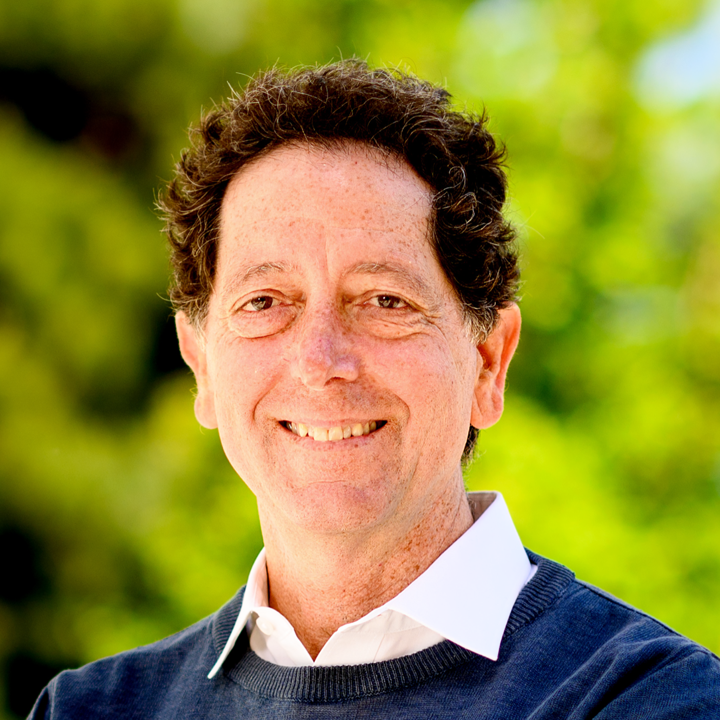
The Centenary Award will be presented to Professor Kevan Shokat in 2026. Kevan is currently an Investigator of the Howard Hughes Medical Institute, Professor in the Department of Cellular and Molecular Pharmacology at UCSF and a Professor of Chemistry at UC Berkeley. Kevan received his undergraduate degree at Reed College, his PhD at UC Berkeley and did post-doctoral training at Stanford. He was inducted into the National Academy of Sciences (2010), the National Academy of Medicine (2011), and the American Academy of Arts and Sciences (2011). His lab is most well-known for drugging the "undruggable" oncogene K-Ras (G12C) in 2013. K-Ras was the first human oncogene to be discovered in 1982 and remained undrugged until work from the Shokat lab at UCSF. In May of 2021 the drug sotorasib which binds to the pocket identified by Shokat on K-Ras (G12C) was approved for the treatment of lung cancer patients with this mutation. The field of K-Ras drug discovery is expanding quickly to hunt for drugs to target the other K-Ras mutants such as those which drive colon and pancreatic cancers which collectively represent almost 20% of all cancer patients world-wide.
Kevan said: "I would like to thank the Biochemical Society for this recognition of our lab’s efforts to develop tool molecules and drugs which target key drivers of cancer including protein and lipid kinases and the GTPase K-Ras.”
Benjamin Ryskeldi-Falcon
Benjamin Ryskeldi-Falcon

The Colworth Medal will be awarded to Dr Benjamin Ryskeldi-Falcon in 2026. Benjamin obtained his BSc in Human Genetics from University College London, where he was awarded the Lilian Clarke Prize. He completed his graduate research with Michel Goedert at the MRC Laboratory of Molecular Biology (LMB), receiving a PhD in Molecular Biology from the University of Cambridge. During this time, he investigated molecular and cellular mechanisms underlying the recently described prion-like propagation of assembled tau protein in neurodegenerative diseases. Benjamin subsequently carried out a postdoc with Michel Goedert and Sjors Scheres at the LMB, where he helped to determine the first structures of neurodegenerative disease-associated protein assemblies using electron cryo-microscopy (cryo-EM).
Benjamin established his independent research group at the LMB in October 2019. His team combines structural and cell biological approaches to investigate the molecular mechanisms of pathological protein assembly responsible for motor neuron diseases (amyotrophic lateral sclerosis) and frontotemporal dementias. Benjamin is a Young Investigator at the European Molecular Biology Organisation and a Co-investigator at the UK Dementia Research Institute. For his research, Benjamin has received the Alzheimer’s Research UK Rising Star Award, the Breuer Foundation Alzheimer’s Research Award, the SCOR Young European Researcher Prize and the Vallee Scholar Award.
Benjamin said: "I am honoured to have been chosen for this prestigious award and to receive recognition for the contributions we have made to understanding the structural basis of pathological protein assembly in neurodegenerative diseases. I share the honour with the many outstanding colleagues that I have had the privilege to work with, including team members, mentors and collaborators. It is my hope that this award will highlight our work to a broader audience of biochemists, fostering new ideas and collaborations to help understand the biological underpinnings of neurodegenerative diseases.”
Georgia Atkin-Smith
Georgia Atkin-Smith
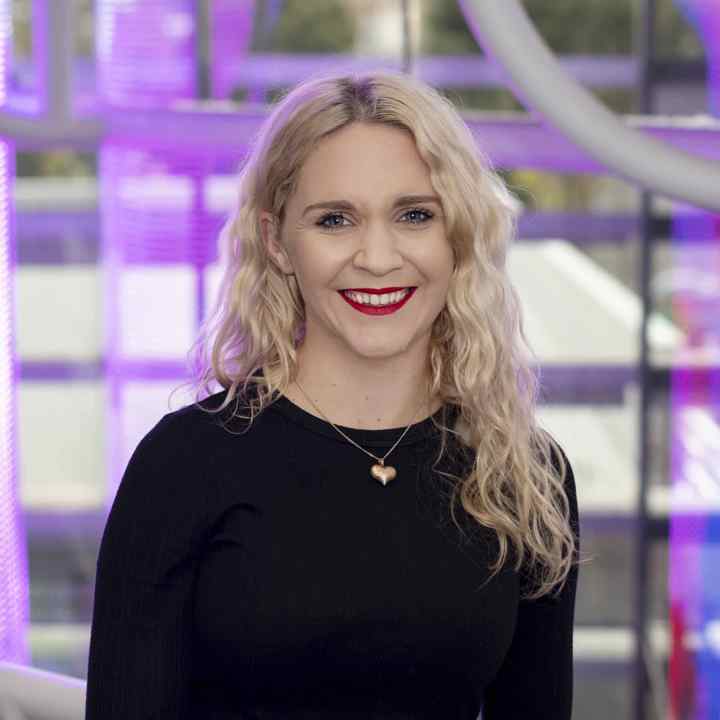
One of the Early Career Research Awards for 2026 will be presented to Dr Georgia Atkin-Smith. Georgia is a Senior Postdoc and NHMRC Research Fellow at the Walter and Eliza Hall Institute of Medical Research. She is mentored by Associate Professor Edwin Hawkins, Professor Andreas Strasser and Professor Gemma Kelly. Georgia completed her PhD in 2019 at La Trobe University, receiving the Nancy Millis Medal for the top 5% of PhD theses. During her postdoctoral tenure, Georgia secured multiple highly competitive research grants, including an NHMRC Investigator Grant, a L’Oreal UNESCO For Women In Science Fellowship and multiple philanthropic grants. Her research combines a variety of high-resolution imaging techniques to study cell death, efferocytosis and cancer. Specifically, Georgia specialises in intravital microscopy which provides an unparalleled approach to track the development and treatment of blood cancers in vivo. Her exciting research program has resulted in multiple high impact first author publications such as in Nature Communications (x2), Communications Biology, Cell Reports and more. She is the President and Founder of the Australasian Cell Death Society and Editor at Cell Death and Disease. Also known as Some Blonde Scientist, Georgia is a passionate science communicator, Keynote speaker and advocate of women in STEM.
Georgia said: “I am extremely thankful to the Biochemistry Society for this incredible honour. This recognition will assist me in establishing my independent research team and with it, generate new knowledge into the development of blood cancer in vivo. I hope this can be celebrated by all new mums who are striving to find the balance between their careers and parenthood – success comes only through the combination of support and sacrifice.”
Nicholas M. Riley
Nicholas M. Riley

One of the Early Career Research Awards for 2026 will be presented to Dr Nicholas M. Riley. Nick is originally from Louisville, KY and earned his B.S. in Chemistry from the University of South Carolina. He then moved to Madison, WI for his graduate studies with Professor Josh Coon at UW-Madison, where he worked on mass spectrometry instrumentation and proteomics methodology. He focused on methods involving electron transfer dissociation, which introduced him to glycoproteomics. His newfound interest in glycoproteins led him to a postdoc with Professor Carolyn Bertozzi at Stanford University, where he worked on new chemical biology, mass spec, and informatic tools to characterise mucin-domain glycoproteins and cell-type specific secretomes. Since starting in Seattle in fall 2023, his group uses state-of-the-art mass spectrometry and chemical glycobiology to develop innovative technologies to investigate glycoproteome regulation. Specifically, his group is interested in understanding how altered cell surface phenotypes (i.e., glycocalyx status) manifest in cancer progression and drive metastasis.
Nick said: "I am honoured to join a distinguished group of Biochemical Society awardees! I am most excited for how this opportunity can further my group's collaborative research. There are so many contexts where glycobiology drives interesting biochemistry, and I hope this can be an exciting moment to highlight the bioanalytical methods our group has developed so that we can connect with others to keep expanding our scope of understanding of how glycoconjugates affect cell surface biology.”
Eduardo Fuentes-Lemus
Eduardo Fuentes-Lemus
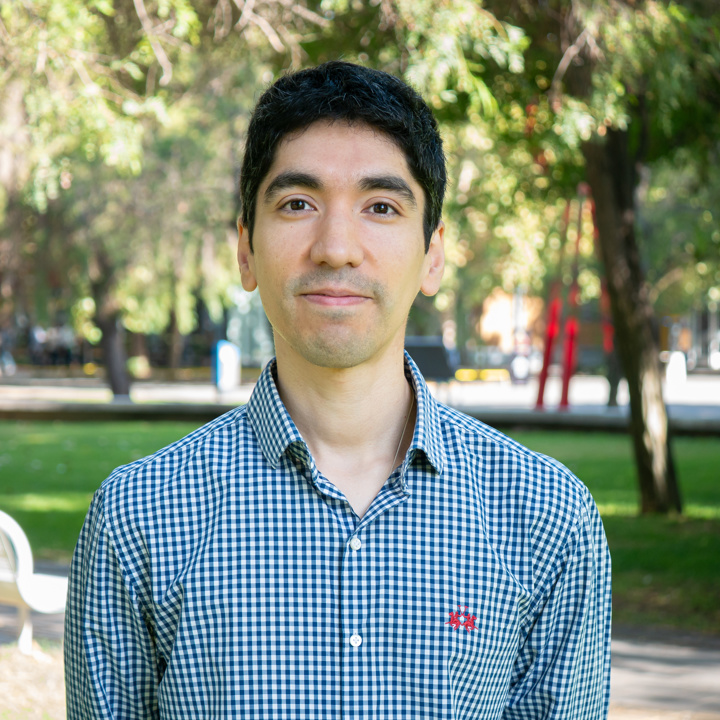
One of the Early Career Research Awards for 2026 will be presented to Dr Eduardo Fuentes-Lemus. Eduardo received his PhD in Chemistry in 2018 from the Pontifical Catholic University of Chile. Then, after a one-year postdoc at the University of Santiago (Chile), he moved to Denmark in 2020 to continue his academic career as a postdoc at the Department of Biomedical Sciences (University of Copenhagen) after receiving an Individual Fellowship under the programme Horizon 2020 (European Commission, Marie Skłodowska-Curie Actions). Since July 2024 he holds a tenure-track Assistant Professorship position at the Pontifical Catholic University of Chile, and continues as a Guest Researcher at University of Copenhagen. His current research interests include understanding different physico-chemical aspects that modulate protein modification (primarily oxidative modifications), particularly, the effect that biological interfaces, macromolecular crowding and microdomains would have on the pathways and kinetics of protein oxidation and aggregation.
Eduardo said: “I was coming back to the office from my teaching duties at the University when I learned that I have been awarded the Early Career Research Award. I was absolutely delighted and felt extremely fortunate - The list of previous winners is very impressive! The first person that came to my mind (after my wife of course) was Prof. Michael J. Davies to whom I am extremely grateful. He has been an inspirational mentor throughout my career showing me the path to a meaningful scientific/academic career. I am also grateful to Prof. Radi and Prof. Hawkins who supported my nomination and are also inspiring researchers. Finally, I would like to thank the colleagues and students I had while working at the Protein Oxidation group (BMI, UCPH), as well as, all my other colleagues working at various international institutions. Receiving this recognition is really humbling and reinforces my commitment to continuing performing research at the highest level. Hopefully, this will boost my career opening new funding opportunities for my newly established group at the Pontifical Catholic University of Chile”.
Juan Carlos De La Concepción
Juan Carlos De La Concepción
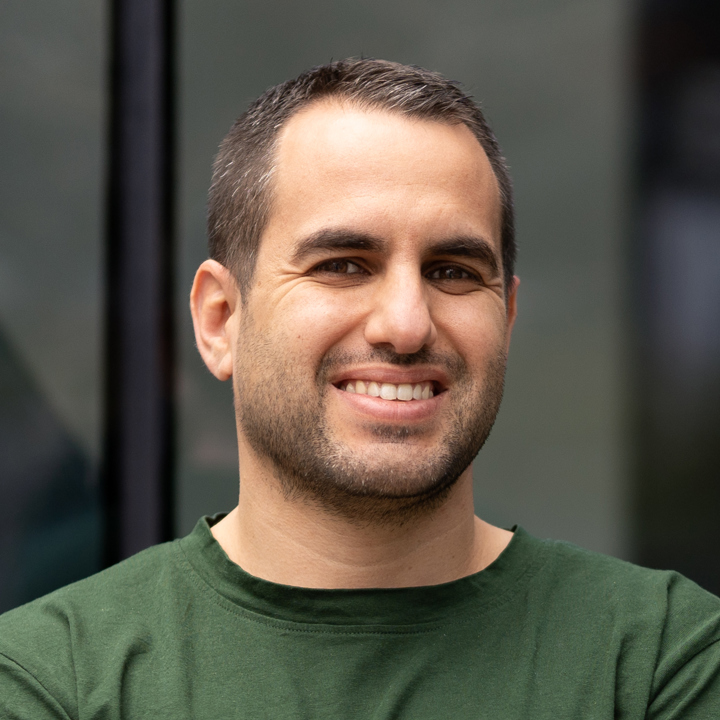
One of the Early Career Research Awards for 2026 will be presented to Dr Juan Carlos De La Concepción. Juan is from a city near Sevilla, Andalucia, where he completed his bachelors in Biology and Biochemistry and later on a Masters in Molecular Genetics. After numerous internships abroad, Juan was lucky to join the Rotation PhD in Plant and Microbial Sciences at The John Innes Centre and The Sainsbury Laboratory in Norwich. There, he worked in unravelling the structural basis of how the plant immune system recognise fungal pathogens. Juan’s work, in collaboration with colleagues in UK and Japan, advanced the understanding of plant immunity and led to the engineering of novel plant immune receptors for improved disease resistance in crops.
After his PhD, he moved to the Gregor Mendel Institute in Vienna where he changed research field and extended his skillset to investigate the biochemical basis of evolution in a conserved eukaryotic protein complex. While doing his postdoc, Juan acquired experience in Cryo-EM and Cryo-ET with the aim of applying these technologies to investigate the cellular changes underpinning the biology of plants and pathogens.
Juan said: “It is an honour to receive this recognition from the Biochemical Society. Looking at the list of great scientists previously awarded, it feels incredibly humbling and motivating to be listed among them.”
Photo credit: Adam Cooper
Shina Caroline Lynn Kamerlin
Shina Caroline Lynn Kamerlin
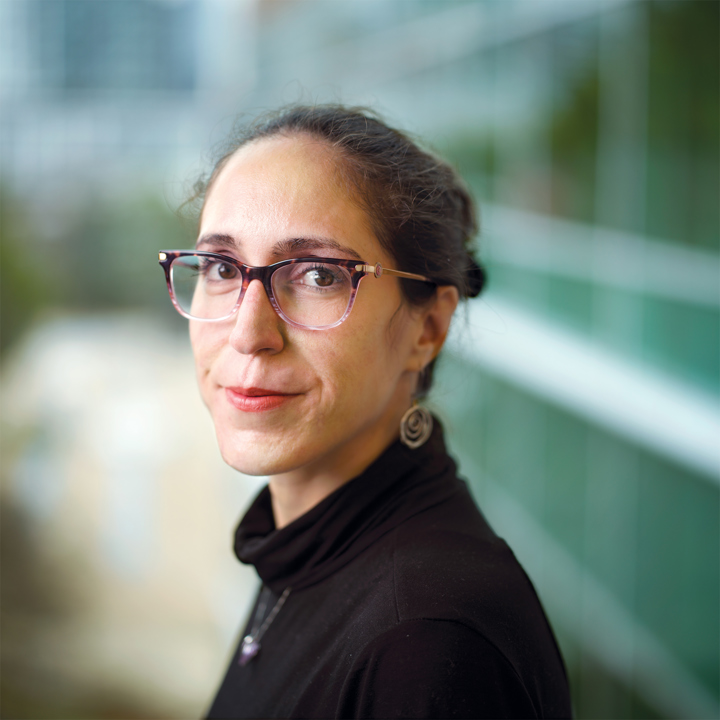
The Inspiration and Resilience Award will be presented to Professor Shina Caroline Lynn Kamerlin in 2026. Lynn Kamerlin obtained her PhD in chemistry from the University of Birmingham in 2005, followed by postdoctoral research in the laboratories of Stefan Boresch at the University of Vienna and Arieh Warshel at the University of Southern California, before joining the faculty of Uppsala University in 2011. She is currently a Georgia Research Alliance Eminent Scholar and the Vasser Wooley Chair of Molecular Design at the Georgia Institute of Technology, as well as a Lise Meitner Professor at Lund University. Her research focuses on understanding the role of conformational dynamics in protein evolution, and how this can be exploited to engineer novel proteins with tailored biocatalytic properties. In addition, she has engaged extensively in high-level science policy, in particular as relates to open science and researcher careers, and has served as a former Chair of the Young Academy of Europe, and a member of the executive council of the Protein Society. Finally, she has been deeply engaged in supporting women in science, widening participation in Europe, and promoting the careers of young scientists, including having organised several conferences and workshops on this topic, and acting as a co-author and signatory to the Bratislava Declaration of Young Researchers.
Lynn said: "Academic CVs rarely, if ever, carry the human stories underlying professional accomplishments. I have chosen to be open about my battles with infertility, and my experiences as a rare disease patient, to help others feel less alone. Because of that decision, receiving this award, which recognises those experiences, and their role in shaping my career beyond my visible professional accomplishments really means a lot to me. I hope the visibility this award provides me will bring encouragement and inspiration to each of you as you are navigating your own challenges on the paths that shape your scientific careers. Finally, on a personal level, in addition to the recognition, the most valuable part of this award to me is the opportunities it provides for me to give back to the society and contribute to our community.”
Morag Martin
Morag Martin
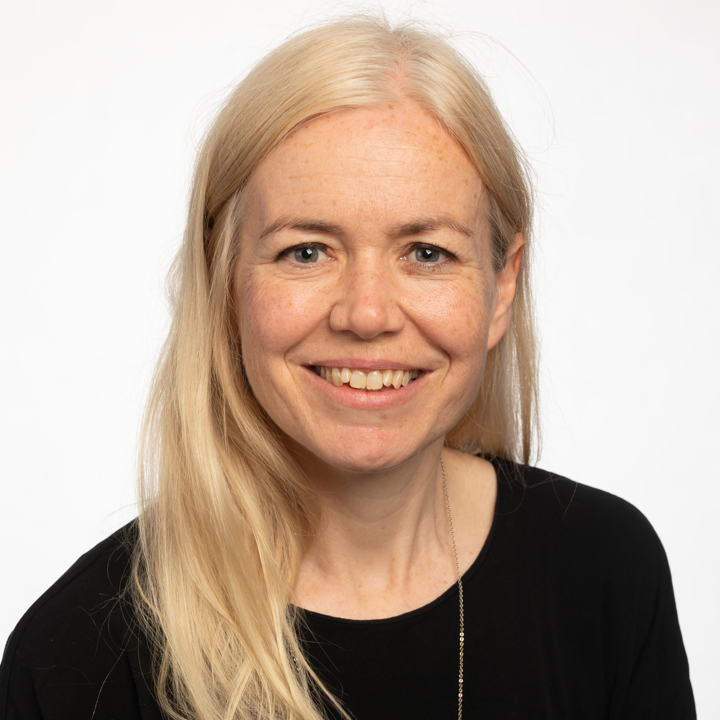
The Research Support Award will be presented to Dr Morag Martin in 2026. Morag is the Innovation Cluster Manager at the University of Dundee, where she leads initiatives focused on maximising the economic and social impact of life sciences research and innovation. She has played a key role in advancing research innovation at the University by securing competitive funding to support life sciences translation and commercialisation, and fostering collaboration across academic, government, and industry sectors.
Joining the University in 2010, Morag contributed to the development and implementation of the School of Life Sciences' research strategy. Alongside Sir Mike Ferguson, she helped raise £15 million in external capital investment, enabling the expansion of the University’s translational life sciences capabilities. This included supporting the growth of the Drug Discovery Unit, the Division of Computational Biology, and the development of one of the world’s largest Quantitative Proteomics facilities, all housed in the Discovery Centre for Translational & Interdisciplinary Research building at the School, which opened in 2014.
In recent years, Morag has helped secure over £30 million in external funding from government, charitable foundations, and enterprise agencies, leading to the establishment of a new Life Sciences Innovation Hub. This facility is designed to support life sciences companies to grow and scale within flexible, turnkey laboratory and office space, providing access to advanced technology platforms and a deep local talent pool.
Earlier in her career, Morag held postdoctoral positions at Cancer Research UK and the University of Dundee, and holds a PhD from the University of Edinburgh.
Morag said: "I am truly surprised and deeply honoured to receive this award from the Biochemical Society. Winning the Research Support Award is an incredible privilege, and I would like to extend my heartfelt thanks to my colleagues who nominated me and supported my application. The Biochemical Society’s decision to create the Research Support Award underscores the importance of collaboration in advancing research and innovation. In these particularly challenging times for the higher education sector, it is more crucial than ever that we continue to work together and strive towards the collective good. At its core, scientific research is a team effort, and I am fortunate to work alongside many talented individuals. Together, we have always aimed to create and support opportunities to translate life sciences innovation into meaningful social and economic impact. I would like to thank all my colleagues and mentors at the University of Dundee, as well as our collaborators and partners beyond, for their ongoing support and collaboration on a wide range of projects."
Lykke Sylow
Lykke Sylow
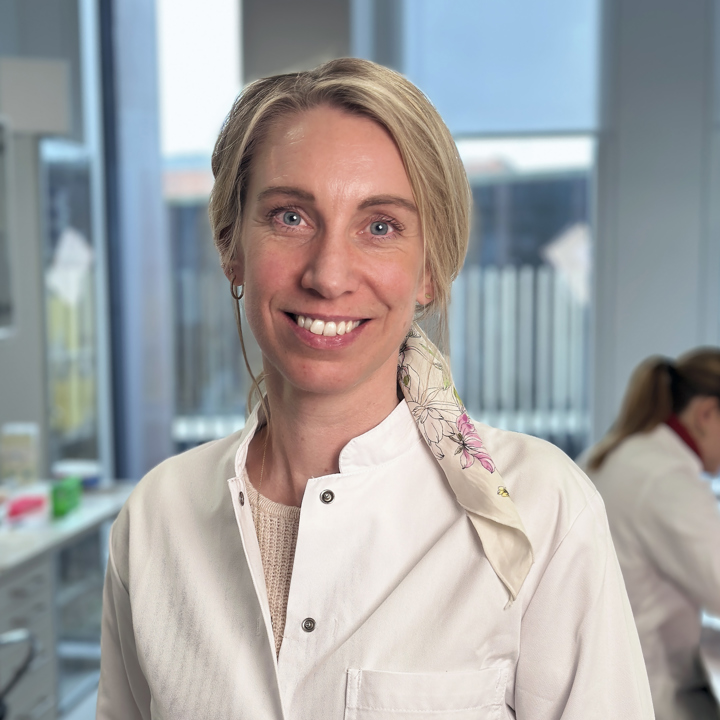
The International Award will be presented to Dr Lykke Sylow in 2026. Lykke is a pioneering biochemist whose research has significantly advanced our understanding of muscle metabolism and its links to chronic diseases such as diabetes and cancer. Her work bridges fundamental biochemistry with translational applications, uncovering key biochemical mechanisms that regulate glucose uptake and muscle adaptation. Using innovative techniques such as Adeno-Associated Virus (AAV) delivery systems and inducible tissue-specific genetic editing, Dr Sylow has uncovered the interaction between muscle mass and insulin sensitivity through the TGF-beta pathway, with profound implications for metabolic disorders. Her research has also shed light on the role of the small GTPase Rac1 in glucose uptake, a pathway disrupted in type 2 diabetes and obesity.
Dr Sylow’s impact extends beyond academia, with her biochemical insights informing clinical trials and therapeutic strategies for muscle wasting in obesity, aging, and cancer. She collaborates with industry partners, including Insilico Medicine and Pephexia Therapeutics, driving drug development initiatives. Her publications in leading journals such as Nature Communications, Science Advances, and PNAS have earned her over 4,000 citations, reflecting the widespread influence of her work.
A dedicated mentor, Dr Sylow actively supports young researchers through structured mentorship programs and teaching at the University of Copenhagen, fostering excellence in scientific culture. Through her leadership and groundbreaking research, Dr Sylow is shaping the future of biochemistry and its application to metabolic health.
Lykke said: "I am truly honoured to receive this recognition, not just for myself, but on behalf of the incredible colleagues, collaborators, and students who have made our discoveries possible. This award highlights the importance of bridging biochemistry with medical research to address critical health issues, and I am deeply grateful for this acknowledgment and the attention it brings to this vital field.”
Doryen Bubeck
Doryen Bubeck

The GlaxoSmithKline Award will be presented to Professor Doryen Bubeck in 2026. Doryen is a Professor of Structural Immunology at Imperial College London and a Satellite Group Leader at the Francis Crick Institute. After a B.Sc. at Rensselaer Polytechnic Institute, she was awarded a doctoral fellowship from the National Science Foundation to pursue a PhD in Biophysics at Harvard University. She then moved to the University of Oxford to work with Professor Yvonne Jones under an EMBO postdoctoral fellowship and a subsequent fellowship from Cancer Research Institute. During this time, she developed a broad training in structural biology and a fascination with membrane biophysics which lay the foundation for her independent research career at Imperial College London. In 2012 she was appointed as a Lecturer in the Department of Life Sciences and was awarded a Career Establishment Award from CRUK to start her research group. She was promoted to Senior Lecturer in 2017, Reader in Structural Immunology in 2021 and Professor of Structural Immunology in 2023.
Her research explores fundamental mechanisms in immunity and how pathogens hijack cellular pathways during infection. Using cryo electron microscopy she discovered molecular drivers underpinning assembly of the complement membrane attack complex, an immune pore that directly kills bacteria. By developing and applying novel model membrane systems in structural biology, she showed how human cells are protected from damage by the pore when the immune system switches on.
Doryen said: “I’m truly honoured to receive the Biochemical Society’s GlaxoSmithKline Award for my research in structural immunology. It recognises the innovative approaches of my team and strengthens our dedication to tackling the most important questions in biomedical research."
Rebecca Lewis
Early Career
Rebecca Lewis

The Early Career Teaching Excellence Award will be presented to Dr Becky Lewis. Although teaching throughout her PhD, Becky’s lecturing career really began in 2019, where she became course director for biological sciences with a foundation year and biochemistry with a foundation year, organising the biology modules for these courses. Her current role includes responsibility for skills development in first year students across the school of biological sciences, through organisation of the Professional Skills for Biosciences module. Becky has adapted this module, improving the authenticity of the assessment and the student experience. As an advocate for staff sharing best practice in student skills development, Becky has established a Skills Community of Practice. Becky has also adopted the role of Transitions officer, and as part of this has collaborated with colleagues to produce a pre-arrival module for their students. They were awarded the European First Year Experience Team Award for this work, which they have shared openly with other schools and institutes through various talks, publications and their annual Student Belonging Conference. Becky is also the 2024 winner of her institutional Sir Geoffrey and Lady Allen Prize for Excellence in Teaching. Across her teaching, Becky strives to implement new ways to engage her students and enhance their transferable skills, through unconventional teaching methods, such as campus-wide trails and teamwork projects, or innovations in assessment, such as through student conferences and vivas.
Rebecca said: “I am so pleased to have won this Teaching Excellence Award from the Biochemical Society. The opportunity to share what I’ve been working on and receive such validation is greatly appreciated and very motivating and I’m honoured to be contributing to advancements in learning and teaching in the biosciences. I’m very grateful to those that nominated me or supported my application and to the Biochemical Society: thank you!”
Sophie Rutschmann
Established Educator
Sophie Rutschmann
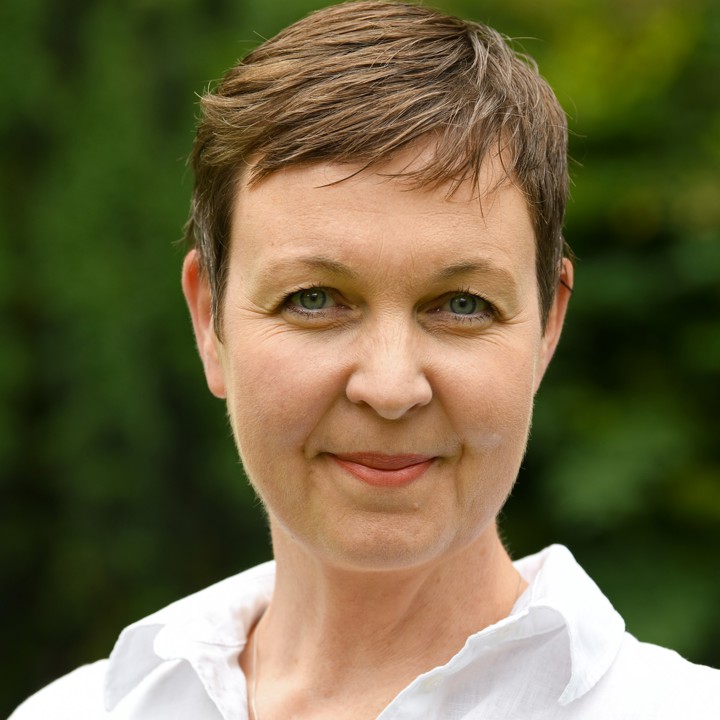
The Established Educator Teaching Excellence Award will be presented to Dr Sophie Rutschmann. Sophie is a dedicated immunologist who, after an impactful career in STEM research, decided to focus on education at Imperial College London.
Sophie uses her dual expertise in research and education to continuously innovate and passionately advocate imbedding authentic aspects of the scientific community in the classroom to develop students’ knowledge and critical thinking skills. In particular, she has implemented a student-centred taught laboratory module in which students design, execute, analyse, and troubleshoot their own mini-research project, has designed a module during which students teams attend a national Immunology conference to investigate a topic and report their findings, and developed a very successful immunology suite of open content courses available for free to thousands of learners worldwide. The evidenced positive impact of several of Sophie’s approaches on students’ learning and teachers’ enjoyment has encouraged others to adapt and implement them in their taught programmes at Imperial and beyond.
Over the years, Sophie’s education and leadership impact, reach and value have been recognised by many colleagues, students, and institutional accolades. Most recently, she received the British Society for Immunology's first Teaching Excellence Award and was awarded a National Teaching Fellowship of the Higher Education Academy.
Sophie said: "I am extremely honoured to have been awarded the Established Educator Teaching Excellence Award by the Biochemical Society. The recognition of my work’s quality and impact by educators in my STEM field validates my approaches, boosts my confidence, and give me renewed energy to continue my endeavours! This award also recognises the support I have received from past and present colleagues, the opportunity I had to interact with exceptional students, and the work we all do in training the next generation of scientists.”
Len Stephens
Len Stephens
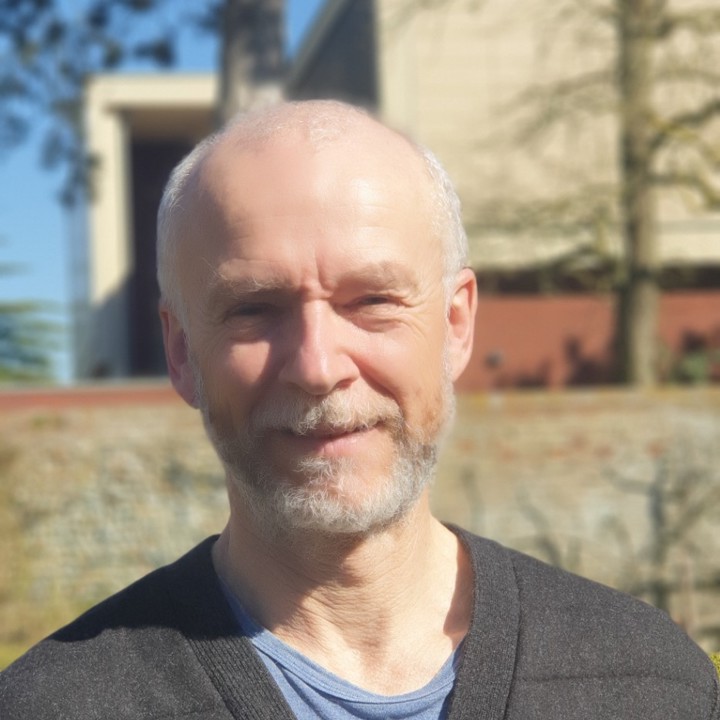
The Morton Lecture will be presented to Dr Len Stephens in 2026. Len works with Phill Hawkins on understanding the physiological function of phosphoinositide 3-kinase (PI3K) signaling pathways. Most of their early work concerned the structures of the lipid messengers generated by this pathway, the pathways involved in their synthesis and the molecular mechanisms by which they act as intracellular signals. Their work established that cell surface receptors stimulate a PI3K that generates the membrane phospholipid PtdIns(3,4,5)P3, which acts as an intracellular signal to regulate the protein kinases PDK-1/PKB and also the guanine nucleotide exchange factor, Prex-1. This work has contributed to the greater body of knowledge that has now established PI3Ks as major regulators of cell growth, survival and movement. This work also created a paradigm for how inositol-containing phospholipids act as regulatable scaffolds, that dictate the localization and function of proteins on the membranes in which they reside.
Stephens and Hawkins also discovered the PI3Kg isoform in myeloid cells and delineated some of the molecular details for how this enzyme is regulated by G-protein-coupled receptors and regulates the neutrophil oxidase. Their work has also addressed the role of PTEN as a tumour suppressor and both PIP3 and PI(3,4)P2 phosphatase and the rules directing the assembly of class IA PI3K complexes in vivo.
Len said: “The Biochemical Society’s Morton Lecture has a long and rich history of bringing attention to outstanding work on lipids and it is very humbling to think the work our team has done will be listed as recipients in the future. Although I am retiring this year, the award will hopefully give those team members who will be continuing to work on lipids a little extra enthusiasm and impetus knowing their work is appreciated.”
Len presented his Award Lecture at the 'Cell signals for health & disease symposium' at the Babraham Institute on 1 May 2025.
Bill Rutherford
Bill Rutherford

The Keilin Memorial Lecture will be presented to Professor A. W. Rutherford in 2026. Bill is a field leader in photosynthetic bioenergetics, focusing on photochemical reaction centres and water oxidation. Evolutionary thinking gave him an edge when interpreting ambiguous biophysical data. He did Biochemistry at the University of Liverpool, a PhD at University College London, post-doctoral work at the University of Illinois, Riken (Saitama) and CEA-Saclay, before joining the CNRS. In 2011, he moved to Imperial College London. Bill followed his own interests, producing discoveries and concepts central to the field. These include: i) the Photosystem 2 (PS2) chlorophyll triplet responsible for singlet oxygen-induced photodamage that limits plant growth, ii) the PS2 primary electron donor, ChlD1; iii) the mechanism of PS2 herbicides (photo-oxidative stress), iv) the origin and mechanism PS2 thermoluminescence, v) the role of bicarbonate in PS2 (protection by redox tuning).
In 2012, Bill introduced the concept that redox tuning is required for life in O2, explaining anomalies in photosynthetic and non-photosynthetic bioenergetics. This interest in energy accounting opened new research directions. In 2018 his team showed long-wavelength photochemistry in chlorophyll-f-containing photosystems: a major surprise. This work i) changed the understanding of energy limitations in photosynthesis, ii) linked the number/colour/location of the light-collecting chlorophylls to the bioenergetics of charge separation, iii) provided design concepts for more efficient photosynthesis; and iv) launched a new and active field.
Bill said: “Bioenergetics is the heart of biochemistry. Photosynthetic bioenergetics is the energy input for the biosphere, and it literally changed the planet. It is a privilege to contribute to the understanding of how it works and it is an honour to be on the list of Keilin awardees that includes the names of researchers who have been variously my heroes or friends (and sometimes both) during my career.”
ACBI PROTAC Collaboration Team
ACBI PROTAC Collaboration Team
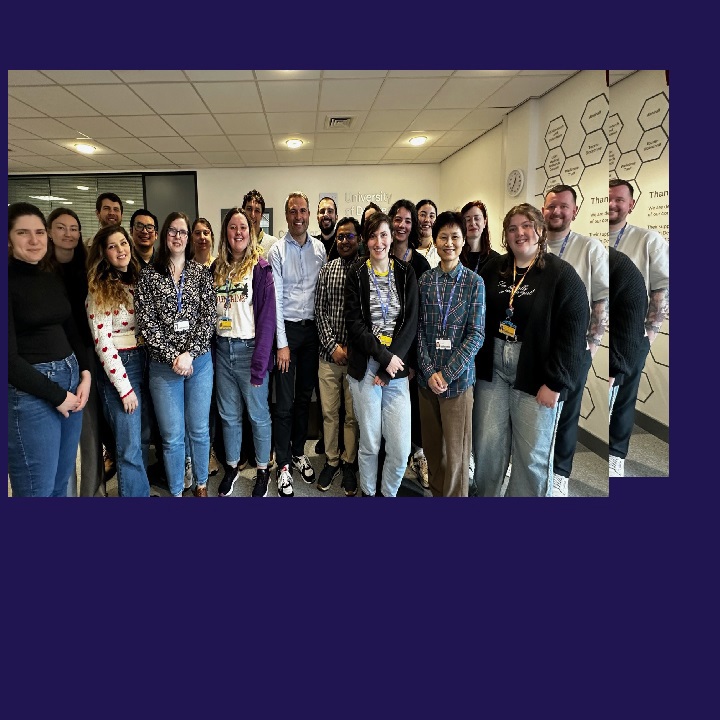
The Industry and Academic Collaboration Award will be presented to the ACBI (Alessio Ciulli – Boehringer Ingelheim) PROTAC Collaboration Team in 2026.
Alessio Ciulli studied chemistry in Florence, Italy, and obtained his PhD from the University of Cambridge, UK, in 2006. After postdoctoral research in Cambridge and a brief visit at Yale University (USA) in 2009, he returned to Cambridge to start his independent group as BBSRC David Phillips Fellow. In 2013, he was awarded an ERC Starting Grant and moved to the University of Dundee, where he was promoted to full professor in 2016. He has received numerous awards, including the 2022 Prous Institute - Overton and Meyer Award for New Technologies in Drug Discovery. In 2023 he was elected Fellow of the Royal Society of Edinburgh. The Ciulli laboratory designs and develops small molecules modulating protein-protein interactions and inducing targeted protein degradation. He takes a multidisciplinary approach including chemical biology and medicinal chemistry; structural biology and biophysics to elucidate molecular interactions and mechanisms; and MS proteomics and cellular assays to assess pharmacology. Ciulli is passionate about translating fundamental research via collaboration partnerships with the biopharma industry and by creation of spin-out companies. In 2016 he established a major collaboration with Boehringer Ingelheim (BI), bringing together his expertise in targeted protein degradation with BI’s expertise in drug discovery and clinical development of therapeutic agents. He assembled a team in his laboratory at Dundee who have pioneered structure-based approaches to the design of PROTACs to degrade undruggable cancer targets. In 2017, he co-founded Amphista Therapeutics, a targeted protein degradation company that spun-out of his laboratory. He is the founder and director of Dundee’s Centre for Targeted Protein Degradation (CeTPD) which opened in January 2023.
Alessio said: “I am delighted to receive this award on behalf of the entire ACBI (Alessio Ciulli & Boehringer Ingelheim) PROTAC collaboration Team. It recognises the vision and success of our “team science”. Our pioneering partnership began in 2015, right at the outset of the new era of targeted protein degradation. It has since been one of the longest and largest collaborations ever pursued by Boehringer with a single Principal Investigator-led academic laboratory. It is a tribute to the talent and dedication of all scientists at Dundee and Boehringer that have worked hard together to develop new degraders as medicines for cancer patients. I hope that this award will bolster our continued relationship with Boehringer and, more broadly, that it will inspire others to adopt similarly open and fully integrated models of academia-industry partnerships to catalyse innovation and translation.”
Cees Dekker
Significant Breakthrough or Achievement
Cees Dekker
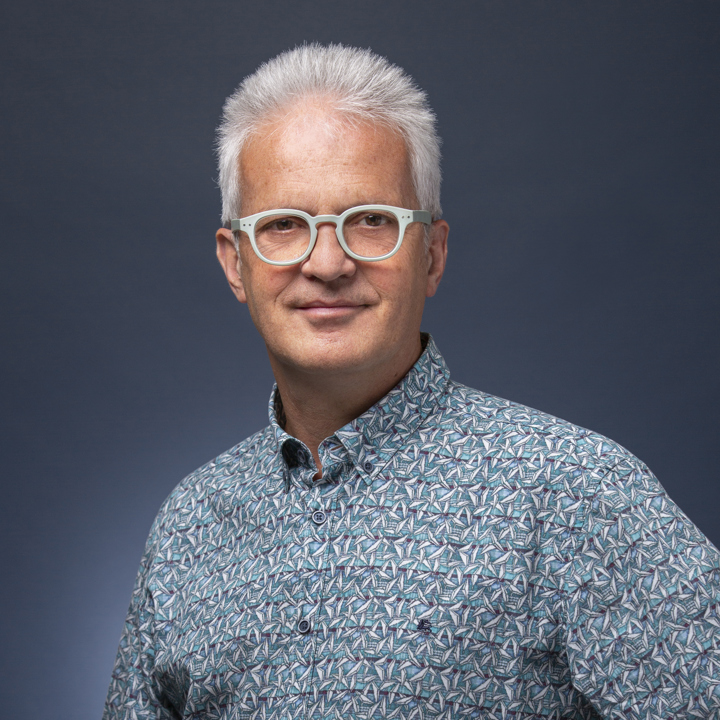
The Biochemical Society Award for Significant Breakthrough or Achievement will be presented to Professor Cees Dekker in 2026. Cees is a Distinguished University Professor at TU Delft. Trained as a physicist, he pioneered nanotechnology with many discoveries on carbon nanotubes in the 1990s. Since 2000, he moved to single-molecule biophysics and nanobiology.
Dekker is an elected member of the Royal Netherlands Academy of Arts and Sciences (KNAW) and fellow to the American Physical Society (APS) and the Institute of Physics (IOP). Dekker was Director of the prestigious Kavli Institute of Nanoscience Delft, initiated an entirely new Department of Bionanoscience at Delft, and leads large national research consortia. He received an honorary doctorate and many prizes such as the 2001 Agilent Europhysics Prize, 2003 Spinoza Prize, 2012 ISNSCE Nanoscience Prize, 2017 NANOSMAT Prize, 2021 Nano Research Award, and the 2024 Sackler Prize. Dekker was knighted as Knight in the Order of the Netherlands Lion, and he received ERC Advanced Grants in 2009, 2015 and 2020. Dekker published over 400 peer-reviewed papers that got cited >90.000 times (H-index 128).
His current research focuses on (i) nanopores for protein sequencing; (ii) chromosome structure, in particular SMC motor proteins; and (iii) building a living synthetic cell from lifeless molecules. On the latter subject, he initiated efforts to build a synthetic cell from the bottom up already 2 decades ago. He was one of the pioneers triggering the Dutch BaSyC consortium and the European Synthetic Cell Initiative, and currently leads the large (46M€) Dutch consortium EVOLF. His lab’s research on synthetic cells ranges from facilitating microfluidics lab-on-a-chip technology for generating liposomes, to biophysical studies of synthetic cell division, to synthetic genomes.
Cees presented his Award Lecture at The biology and physics of prokaryotics chromosomes VII between 16-19 September 2025.
Cees said: “I am really greatly honoured by this 2026 Award from the Biochemical Society. It is wonderful that they acknowledge our contributions to nanobiology and single-molecule biophysics in this way, and it is a further motivation to continue this research in the forthcoming years.”
